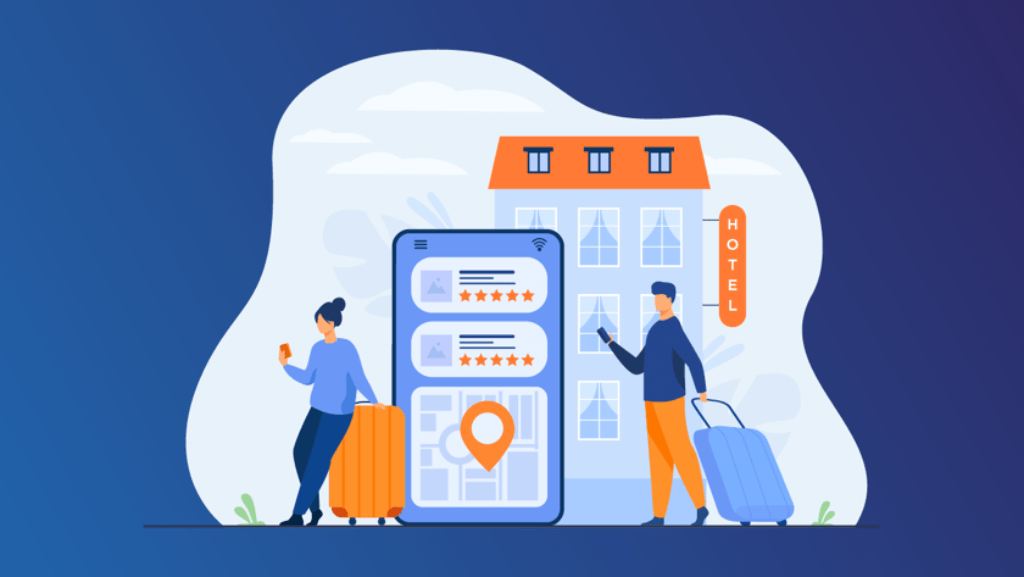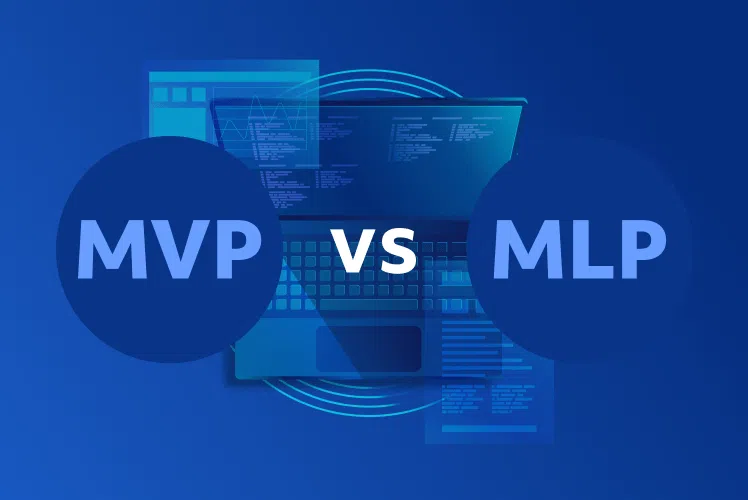Table of Contents
Booking a hotel room has never been easier than now. All you have to do is search either an official website or a third-party vendor like Booking.com, fill in the dates, select a good-looking place, and you are all set.
But do you know what’s going on behind the scenes? Hospitality is much more than room booking. There are hundreds of processes involved and every hotel has several areas to monitor and manage. In order for a hotel to efficiently serve its guests while managing back office and front office areas, there are specialized HMS (hotel management software) solutions.

HMS: the definition and role
As we already said, the hotel management system is a solution that is aimed at helping hotels more efficiently carry out their functions. This piece of software automates a number of processes, keeps them all in one place, and connects all departments together, making their work more visible. With the help of the hotel software, one can easily manage point-of-sales, assign tasks to the housekeeping team, obtain information about guests and so much more.
Before introducing technology to the industry, hotels had to struggle with massive amounts of paper documentation. Needless to say, this format was highly inconvenient. With the implementation of technological solutions, it became easier for hotels to manage their processes and now, specialized hotel software can be called the jewel in the crown. A good HMS solution encompasses CRM and CMS, channel management, housekeeping management, and much more (we’ll see all modules in more detail below). For now, let’s see the biggest tangible benefits of getting hotel management software for your establishment.
Better customer service
It goes without saying that a centralized and automated CRM system can do wonders. With the help of HMS, hotels can improve customer service with the following:
- Better management of loyalty programs and perks;
- Omnichannel experience;
- Contactless operations (check-in, booking, door locking);
- Virtual assistants (concierges, chatbots);
- Faster service.
By offering guests various service options, hotels save their time and significantly improve the user experience which, in turn, results in customer loyalty and better ROI.
Efficiency and speed of operations
Digitization is always about speeding up and improving existing processes. The same applies to the digitization of hotel processes: by converting paper documents into electronic format and automating certain operations, hotels can significantly improve the quality of their services and save lots of time and resources. A good example is the optimization of the work of the housekeeping department by digitizing the creation and management of bills of lading and automation of tasks generation and assignment. By applying technology to existing processes, the hotel saw revenue growth, increased employees’ responsibility, and created more comfortable conditions for its guests.
Expert Opinion
One of the biggest problems for hotels is to keep everything in one place as there are several departments to take care of. Therefore, any hotel needs a system that would keep all processes in one place, allow communication between the departments, and allow personnel to easily obtain needed information despite the department where it’s stored. This, in turn, leads to higher efficiency and allows hotel stаff to focus on more critical tasks instead of struggling with routine processes.
The main modules of an HMS system
We keep saying that there are several modules in hotel software and now it’s time to describe them in more detail. Each module is designed to manage a certain department and each module is as important as others.
Front desk
A front desk is the first point of sale and contact that guests encounter when visiting the hotel. The front desk manages a number of operations, such as:
- Check ins and check outs;
- Night audit (evaluation and closure of daily cash flow);
- Payment processing and billing;
- Management of room reservations;
- Room management;
- Generation of electronic keys;
- Creation and assignment of tasks for housekeeping;
- Creation and assignment of tasks for F&B (food & beverage department aka restaurants, bars, and room service);
- Inventory update and management.
And there are many more processes tied into the operations of the front desk department. Hence, front desk managers should have an option to easily switch between tasks and departments, receive reports on employee performance and status of tasks, and more.
Back office
This department is responsible for accounting and financial management and the main features in this module are:
- Invoicing of a company and/or travel agent;
- Generation of statements;
- Guest ledger and advance deposit;
- Event management;
- Inventory analysis and management;
- Consumption costs and analysis of spendings made by the hotel;
- Staff invoicing;
- Staff management.
Housekeeping
The housekeeping module helps housekeeping personnel keep track of their tasks, calculate laundry and materials in an easier and faster manner, and manage their schedule. With the help of this module, a front-desk manager can easily see the status of the rooms (which ones are available and which ones need cleaning asap) and housekeeping staff can save their time by enjoying the automation of certain tasks.
CRS and channel management
The central reservation system is one of the core modules of hotel software as it processes all hotel reservations. CRS contains inventory data and dates and sends information about reservations to the front desk. It is a must that your CRS is integrated with the booking engine of the hotel website and distribution channels that you use.
As for channel managers, they serve as an intermediary between the OTAs (online travel agencies), sales markets, and the HMS. Examples of different channels are wholesalers, direct booking platforms, OTAs. With the help of these modules (CRS and CM), the hotel can easily monitor and manage all distribution channels from one place and get advanced reporting on each channel, if needed.
CMS and CRM
Content management systems and customer relationship management systems are critical for any hotel. Unfortunately, hospitality CRMs and CMSs are relatively weak compared to systems in other industries as they often have integration issues and are not very convenient in terms of their management.
Getting back to this module, its main function is storing, processing, and sharing information about guests. While it connects with the front desk and back office, this module also greatly helps in marketing and personalization, allowing the marketing team to adjust its strategy precisely to guests’ interests.
Revenue management
A revenue manager is a highly valuable asset that performs the following functions:
- Monitoring the prices of competitors;
- Price analysis (comparing the prices to the last year ones);
- Building future pricing forecasts;
- Automatic change of rates;
- Recommendations.
A revenue manager may be fully automatic or work in recommendations mode. If the manager is automatic, it independently monitors the prices and their changes and adjusts your own prices correspondingly and without any intervention. If the manager works in the recommendations mode, it simply analyzes the environment and the competition and provides daily recommendations but does not change anything. Overall, this tool is great for managing your rates and frees you from the need to worry about price changes.
Essential third-party features
In addition to the abovementioned modules, there is also a certain number of third-party integrations that every good hotel software should support. They are:
- Credit card processing;
- Private automatic branch exchange (PABX) aka internal business telephone system;
- Door locks for key cards;
- Fiscal printers;
- SMS and/or push notifications.
As you can see, all these services are related to daily hotel operations and all of them have to be supported by the HMS that you use. Hence, when choosing a readymade HMS or developing your custom one from scratch, make sure it supports all needed integrations.
Modern hotel software trends: an overview
Digitization of the hospitality industry is nothing new but only in the last couple of years, there has been a technological boom in this industry. The use of AI for smart chatbots, the growing popularity of mobile apps, virtual assistants, and smart predictive systems – all that is changing the way the hospitality world functions.
When it comes to hotel software, there are several behemoths that have been dominating the market for a long time. These solutions are known by anyone related to the hotel business for their size, complexity, and functionality. However, as the clients’ demands change, these solutions become less suitable for certain users, like small family-type hotels or hostels. The biggest challenges with such platforms are that they are too big, cumbersome, and expensive. Sure, they have brilliant functionality – but it can be too hard to handle them if your hotel is relatively small.
Therefore, we are now seeing more and more flexible cloud solutions that are driving the big brands out. The biggest benefits of these cloud solutions are their small size, a high level of flexibility, and low price. A small cloud solution is a perfect alternative to massive HMS software that is hosted on your server (imagine the load!). So unless you run a hotel chain, you might want to consider a small and cheaper solution.
As for the requirements for hotel software, a good hotel management system must support a great number of features. They include contactless check-in via mobile apps, use of mobile devices as door keys, guest profile setup, virtual concierge, virtual check-out, and many more. There should also be a robust CRM that is seamlessly integrated with a highly functional channel manager. All these features are expected by guests and hotels should ensure to incorporate them into their processes.
Cloud vs readymade vs custom solution: which one to choose?
When it comes to the HMS choice, there are three options available: a cloud solution, a readymade “classic” HMS system like Oracle, and a custom software product. Which one would be the best for you? Let’s see the pros and cons of each.
Cloud solution
Cloud HMS systems are becoming more and more popular as they are small, flexible, and are stored in the cloud, thus not occupying your server. This will be a great solution for small hotels, hostels, and B&Bs due to its size and functionality.
Pros
Cons
Readymade solution
Opera and Fidelio, as stated above, are the behemoths of the HMS systems that were created by the HRS company. These solutions are massive, highly functional, and support the most necessary third-party services. However, they lack flexibility and may not be the best choice for small hotels.
Pros
Cons
Custom HMS solution
This option is great for those who need a specific solution and is not satisfied with the ones available in the market. Of course, the development of a custom HMS will be quite costly and will take a lot of time and effort but the results will be highly rewarding.
Pros
Cons
Summing up
The hospitality industry, same as banking, is quite conservative and does not welcome tech innovations easily. Therefore, when developing an HMS solution, it is important to clearly understand who the end-user is and how exactly the software will be deployed. As mentioned above, big and feature-rich solutions may not be suitable for small private establishments and vice versa. Hence, the development of custom hotel software calls for a thorough analysis of the market, competition, and hotel needs. As well, always keep in mind the subtle aspects of the legal system of a certain country where the HMS product will be used. Some of its features may be useless (due to being contrary to the local legislation, for example) and such things must be considered before the development stage begins.


Comments